On reading again Paul Henry Lang and Leonard Woolf
Music and civilization
I’ve just reread, from cover-to-cover, for the first time in years, Lang’s Music in Western Civilization–first published in 1941. My edition dates from 1969. I’m more impressed than ever.
His authority runs through all 1,030 pages. Here are the first lines of the Introduction:
“Every civilization is a synthesis of man’s conquest of life. Art is the ultimate symbol of this conquest, the utmost unity man can achieve. Yet the spirit of an epoch is reflected not in the arts alone, but in every field of human endeavor, from theology to engineering.”
Notice two things: the vigor of the writing–every sentence is in the active voice, with only one adjective per sentence–and how the plan of the whole book is revealed by the end of the third sentence. He is to present a cultural history, in the widest sense, of music in western civilization.
Lang was a Hungarian who studied, in his youth, at the Budapest Music Academy, the University of Heidelberg, and the Sorbonne. He taught at Columbia University from 1933 until his retirement in 1970. He died in 1991 at his home in Lakewood, Connecticut. Oddly enough, the small town of Lakewood was also the home of the Polish harpsichordist, Wanda Landowska.
His book covers western music from the ancient Greeks to America in 1941. The two last musicians mentioned, I believe, are Richard Strauss and Scriabin. Lang regarded symphonic music of the classic period, ending in Beethoven and Schubert, as the high point of musical western culture. However, he does not reach the classic era until page 618–past the halfway mark. How better to indicate his depth of erudition? But a dry scholar he was not. In addition to erudition, he held strong opinions, and expressed them with a romantic warmth. Here is a paragraph, one of many, on Wagner’s Tristan:
“Tristan carried the sensuous expressiveness of music to its ultimate limits, and the terrific erotic power of this music poisoned the minds of the composers of the succeeding generations. No one could escape its devastating influence, yet no one could even remotely match, let alone continue it, for after the Dionysiac ‘love death’ nothing is possible but undisguised sexual lust.”
Lang, himself a musician as well as a teacher, critic and writer, was not afraid of expressiveness. He wrote about music, which in its higher manifestations is synonymous with spirituality, with a sense of poetry and drama, as in his two paragraphs devoted to Alexander Scriabin near the end of the book:
“Lack of spiritual ideals, submission to materialism and technicalism, and a resultant hunger for sensation and bluff, created an atmosphere in which philosophical and aesthetic judgments were vacillating and a normal and purposeful development of artistic individuality was made exceedingly difficult. This decadence of culture ended in the World War of 1914. New life could be infused into the music of this rapidly disintegrating world only by an even more nervous, sophisticated, and surcharged emphasis on the already overtaxed elements of effect and technique. Experiment then became the final aim, as is so tragically demonstrated in the works of Alexander Scriabin (1872-1915), whose whole art, nay, whole life, was a mere experiment, a supernatural dream, and whose mind, possessed by demonic forces, penetrated deeper and deeper into the mire of mystical speculations, hallucinations, and dementia. The mystic of the early Christian centuries received from Scripture and from the Church an unshakable structure, the secure walls of which could withstand the flow of the most ardent lava of ecstasis. The modern mystic does not receive anything from any source; he has to find not only his forms but he has to create everything, God and Satan, the world and the beyond, the Redeemer and the Antichrist, the saints and the damned; he must himself write the Bible. There was no halt for Scriabin, the modern mystic, for there was nothing that would bind him; such an artist is not interested in national or social aims, in the music of the people, not even purely technical or formal problems, for he already knows everything and wants everything, and like Icarus soars toward the sun.
Scriabin’s new harmonic system proved one thing only: that tone alone no longer suffices, and that the refurbishing of the tonal system cannot furnish the solution. Nor was the already immensely rich color scheme of the modern orchestra sufficient; Scriabin and his followers wanted actual light and actual color. In his last works Scriabin freed himself entirely from the shackles of tonality, proclaiming that he had found the answer to the riddle of cosmic music. The great unity of sensations, visions, and hallucinations emanates from the orchestra of Le Poème du Feu (1913), its ‘color piano’ inundating the unruly maze of tones with its ‘color fire.’ And then he took the final step toward the universal music of Nirvana, the union of sound, color, drama, song, religion; the universal mystery play which would be the crowning of human art. But by this time that meteor of Scriabin’s spirit has passed beyond the atmosphere of the planets, continuing its path in the eternal darkness of the unknown spaces.”
For his title, Lang could have chosen the phrases ‘Western World’, or ‘Western Culture’. Instead he chose ‘Western Civilization’. I think he chose it because he believed that art music–his term–was one of the most important indicators, creators and supports of the courage, compassion and spirit which form the foundation of what we call civilization.
I have also just reread Leonard Woolf’s (Virginia’s Woolf’s husband) five volume autobiography, and anyone who has read that work, or Victoria Glendinning’s recent biography of him, must come to the conclusion that he was an acutely and consciously civilized man. Lang was a Hungarian, Woolf an English Jew; Lang a musicologist, critic and writer; Woolf a publisher, writer, and advocate of political liberalism. It is interesting to compare Lang’s and Woolf’s references to one of Beethoven’s great last works: his last piano sonata, op. 111. Here is Lang’s:
“The last of the piano sonatas is strangely reminiscent of the Pathétique Sonata; it is in the same key of C minor and opens with the same broad pathos, but what follows is different. The concentration of emotions and energies is such that all conventions had to be thrown overboard, and the majestic first movement was followed by a relaxation in remote spiritual regions. Nothing more could be said after these celestial utterances, least of all a witty scherzo or a robust finale.”
And here is Woolf’s mention of the same sonata, in some of his last published thoughts on civilization, towards the end of his final volume of autobiography, The Journey not the Arrival Matters:
“I feel passionately for what I call civilized life; I hate passionately what I call barbarism. When as a small child I heard my father say one day at lunch that, as regards rules of life, a man need only follow that advice of the prophet Micah: ‘What doth the Lord require of thee, but to do justly, and to love mercy, and to walk humbly with thy God’, I am sure that I did not really understand what he was talking about, yet in some curious way, I think, the words entered into and had a profound effect upon my mind and upon my soul, if I can be said to have a soul. . . .
. . . I have never been much concerned with God or with walking humbly with him, but I believe profoundly in the other two rules. Justice and mercy–they seem to me the foundation of all civilized life and society, if you include under mercy toleration. This is, of course, the Semitic vision, but, when later I found that the Greeks had added to it the vision of liberty and beauty–καλσυ και αγαθου–I saw, when I added the words of Micah to the speech of Pericles in Thucydides, what has remained until today my vision of civilization. And my feelings with regard to communal justice and mercy and toleration and liberty are both ethical and aesthetic, and it is this combination which gives to my feeling about what I call civilization both its intensity and also a kind of austerity. The visions of civilization and the partial, hesitating, fluctuating activation of these visions in the barbarous history of man, and the classical instances in which individuals have risked everything in a fight for justice, mercy, toleration, and liberty against the entrenched forces of kings and emperors, states and establishments, principalities and powers, all these have always given me not only an intense feeling about what is good and bad, what is right and wrong, but also the kind of emotion which I get still more powerfully from a play of Sophocles or Shakespeare, the Parthenon or the Acropolis, a picture of Piero della Francesca, a cello suite of Bach or the last movement of the last piano sonata of Beethoven.”


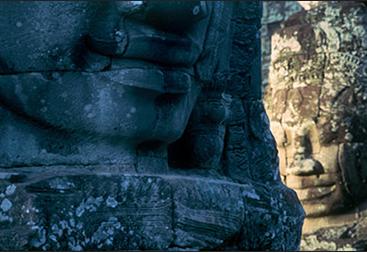

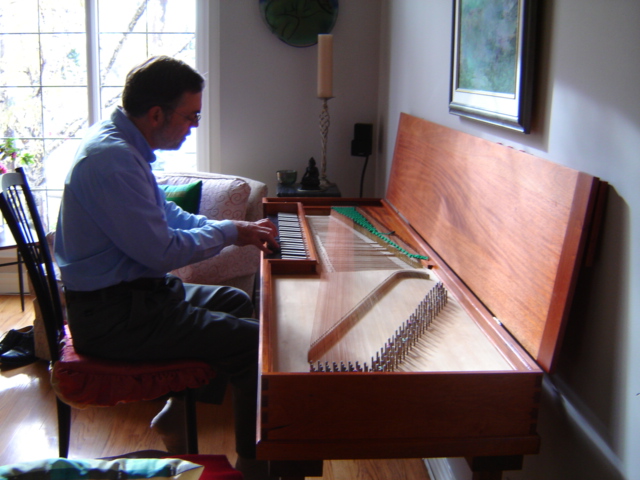



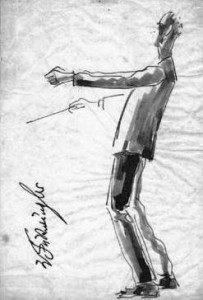


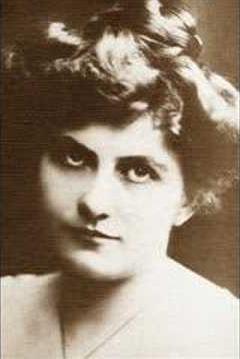
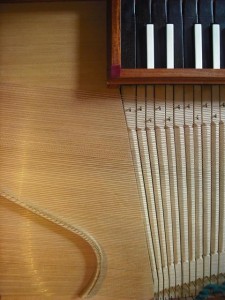
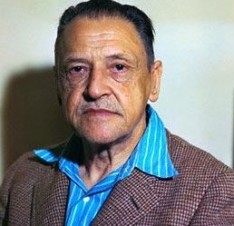
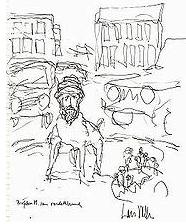

Nice essay John. Now to update go out and buy “And the Rest is Noise, Listening to the Twentieth Century” by Alex Ross, now in paper back.
I think even you won’t be able to put it down.
I met someone recently who is composing works for or doing a show with “your instrument”.
(Must work on remembering who what where.) I mentioned you.
Grüsse aus Berlin – where it is evening and through the open french-style doors, music – a waltz played on a sidewalk calliope… I kid you not.
Myra
Thanks for the compliment, and I shall order that book today! I look forward to seeing you upon your return.